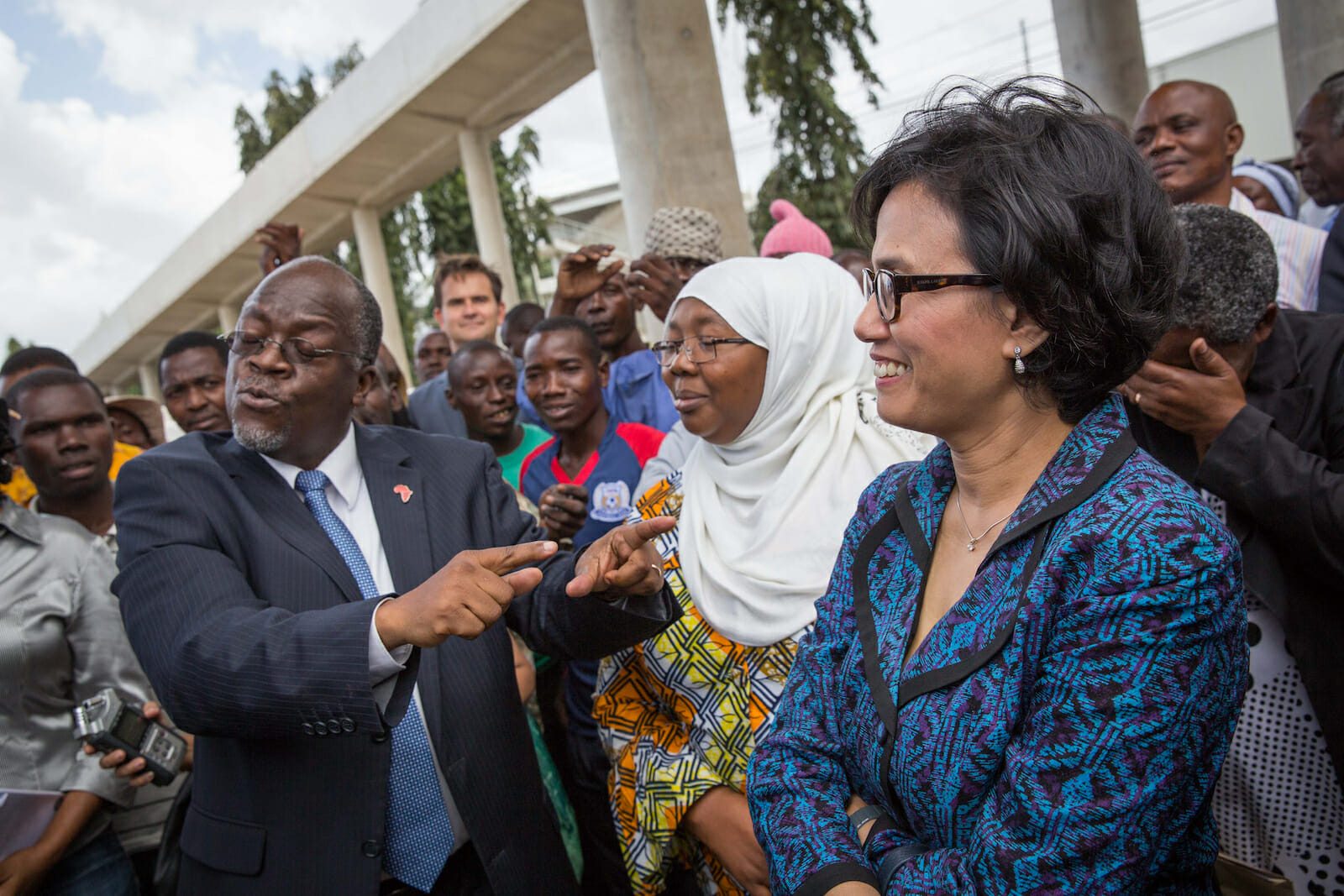
Tanzania’s Worrying Democracy Deficit
Since sweeping to power in 2015, President of Tanzania John Magufuli has embarked on an ambitious campaign to consolidate his authority, which in his view means testing the limits of the law by cracking down sharply on media, opposition, and reigning in foreign investors.
The international community should be paying close attention to these negative trends. Despite averaging an impressive 6-7% GDP growth over the past decade, Tanzania’s once promising market is beginning to look less and less secure of rule of law.
Magufuli has aggressively promoted his vision of a nationalist-populist outlook on the economy, and has sought to claw back revenue with intensified state participation, especially in the resources sector, where dozens of foreign firms have invested billions of dollars.
His most high-profile dispute has been with Acacia Mining, a company majority owned by Canada’s Barrick Gold. Following a ban on exports and massive tax hikes, Acacia was forced to strike a deal last October to pay $300 million to the government, hand over a 16 percent stake in its mines and split ‘economic benefits’ from operations. Now, after losing more than 70% of share value, two Chinese firms are currently negotiating a possible takeover of Acacia’s mines at a steep discount, and one wonders if these ‘regulatory issues’ would be suddenly resolved if the ownership changes.
But more recent regulatory changes also warrant concerns for every extractive industry player in Tanzania, both large and small. The latest round of revisions to mining law are known as the Mining Local Content Regulations of 2018, which by their own description seek to give Tanzania a fairer share of the mineral wealth by prioritizing Tanzanian producers and forcing foreign miners to locally source their finance, technology and labour inputs.
In light of these regulations, questions of whether to persevere, negotiate, or cut losses and get out of Dodge must be answered as the international investor community’s faith in the state deteriorates. For now at least, the new working model means royalties on tax for gold, copper, silver and platinum exports that have been jacked up from 4% to 6%, while the state is demanding 50-50 profit sharing and a minimum state-held stake of 14% in all mining sector projects.
Since coming into office, Magufuli has fired off several rounds of public and private sector regulations, each time aiming at bureaucratic corruption, the economy and inequality, or social issues – and he has often hit his mark, but not without inflicting collateral damage.
This damage, more often than not, has consistently eroded the government’s predictability and credibility, a trajectory that bears resemblance to a Tanzanian president past.
From 1967 to the late 1980s, Tanzania’s President Julius Nyerere attempted a similar set of policies under what was called the “Arusha Declaration,” an African socialist doctrine complete with sweeping post-colonial and anti-capitalist reforms that eventually proved economically ruinous for the nation as industries were nationalized and imports were restricted.
Eventually Nyerere’s successor was compelled to abandon the Arusha Declaration in the 1990s and reopen Tanzania to the global economy. What this instructs us is that there is a proven history of using this issue to further domestic political point scoring – as opposed to a genuine concern for economic improvement.
Magufuli, understands very well how to play up the nationalist-populist agenda. Anyone who is against him, is “against Tanzania,” and as such he’s already banned any opposition political gatherings until 2020, while jailing numerous competing politicians.
Public debate is being asphyxiated. At least four newspapers have been shuttered, dozens of journalists and opposition figures have faced jail or spurious charges, and 10,000 have been purged from the civil service, while one MP has narrowly survived an assassination attempt. A draconian new cybercrimes law has given the government vast, sweeping powers to jail people for social media posts or even WhatsApp messages, while bloggers need to spend almost $1,000 on a license to publish.
On 10 May, a group of 65 international non-governmental organisations, including Amnesty International, published a joint letter expressing their “deep concern over the worrying decline in respect for human rights.”
With independent media silenced, the opposition broken and repressed, and the courts under a tight grip, concerns about expanding levels of state corruption become highly relevant.
For foreign investors with continuing exposure in Tanzania, it is a very difficult moment, but not one that many are willing to abandon. In addition to continuing to seek dialogue with the state, foreign investors need to become more active in the public dialogue on the country’s economic development, and to refuse steadfastly the incorrect narrative being spread that they are to blame for the CCM’s own failures of governance.
States with interests in Tanzania such as Australia, Canada, and South Africa need to become more vocal about Tanzania upholding its commitments under several signed conventions. We need to understand that protecting human rights involves strengthening the protection of property and contract rights – the days of looking the other way are no longer sufficient.
And, Tanzania’s neighbors must contest Magufuli’s abuses of executive behavior and regressive market reforms as it threatens the viability of the region’s economic consolidation and growth. According to the African Development Bank’s 2018 East Africa Economic Outlook, a mixture of private sector uncertainty, reduced FDI and high-profile disputes with extractive industry corporations under the Magufuli regime risks curtailing Tanzania’s growth and jeopardizes its position as a consistently peaceful and prosperous leader in East Africa.
For those who can manage to ride out the current risk environment with good planning and anticipatory political and community engagement, there will be rewards for sticking around in Tanzania in the long term. But for most producers in the sector, they will be understandably looking elsewhere with their investments.
